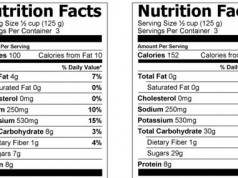Dear Pharmacist,
I have high blood pressure but I’m not willing to start medication yet. It’s only borderline high and I don’t have insurance. If you had to pick only one vitamin, what would you suggest?
–M.G., Ocala, Florida
Answer: If I’m pinned to just one vitamin, I pick potassium. It’s inexpensive, sold over-the-counter at pharmacies nationwide, and well-documented to help regulate blood pressure. There are medications like Micro-K and Klor-Con available by prescription.
Potassium lives in all of our cells, and you need it to move your muscles and make your heart beat in perfect rhythm. Without enough potassium on board, your muscles will cramp (and remember, your heart is a muscle). Potassium seems to protect the brain from ischemic injury (like a stroke). The scary part to me is that there are dozens of drug muggers of potassium, including certain types of diuretics, heartburn medications, laxatives, insulin therapy and corticosteroid drugs. More classes of medications are listed in my Drug Muggers book. I cannot overestimate the importance of restoring nutrients that get depleted by medications, for this is your side effect solution! Most physicians are aware of the need to reestablish potassium levels after ordering a diuretic drug so patients are commonly told to replace potassium with a banana. FYI, one cup of papaya or french green beans have much higher amounts of natural potassium compared to one banana, a fruit that is high in sugar and prone to fungal disease at the plantation.
Potassium can be depleted from the body by intense workouts (think hot yoga), any kind of dehydration, vomiting, chronic or severe diarrhea and alcoholism. If you want to know your blood levels, physicians offer a blood test to evaluate this and other electrolytes.
Potassium works with its brother “sodium” and the two together help control your body’s water balance, which in turn regulates blood pressure. Potassium has a cumulative effect and this makes it better to take a regular dose for two or three months, rather than to take large doses for short periods of time. Never take more than your doctor recommends and be careful because potassium interacts with certain diuretics and blood pressure drugs that are “potassium-sparing.”
Studies consistently support potassium in the regulation of blood pressure. Research has shown that adults (and animals) with high blood pressure, who are given supplemental potassium often show a drop in systolic and/or diastolic pressure by up to 12 mm Hg (sometimes more depending on the study). Animals prone to stroke also showed benefit from potassium in at least one study. Only two percent of the rats who were potassium-supplemented suffered a stroke, compared to 83 percent of the untreated group. When supplementing with potassium tablets, drink plenty of water and eat a snack because this helps ease the mineral into your body gently, while minimizing GI discomfort.
Did You Know?
People with fibromyalgia often have low cortisol, and yoga helps normalize cortisol levels, while reducing pain.













